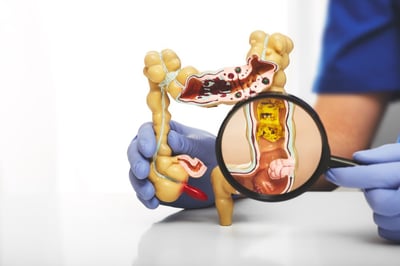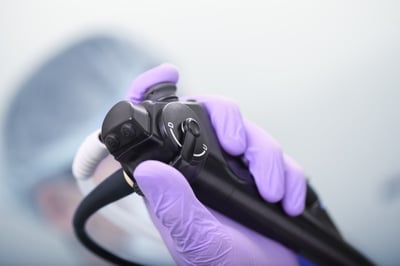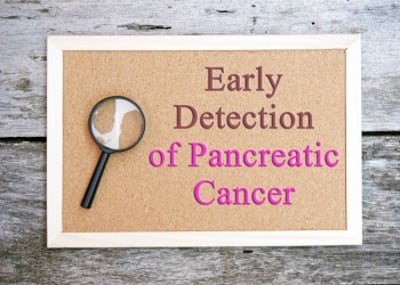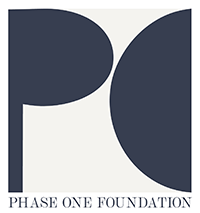Our Featured Research Page lists cancer prevention, treatment and quality of life studies enrolling people with or at high risk for hereditary cancers. You can do a quick search to filter our featured studies by cancer type, study type or key word, or a more in-depth search through clinicaltrials.gov.
Search Results: Prevention, Detection & Risk + Screening & Early Detection (21 results)

Prevention
Gastric cancer screening study for people with a CHD1 inherited mutation
Comparing Screening Methods for Detection of Early-Stage Gastric Cancer in People with a CHD1 Genetic Mutation
This study will compare a new technique of screening for a type of inherited gastric cancer known as diffuse hereditary gastric cancer (DHGC) to see if it can identify cancer better than the current recommended screening.

Prevention
Prostate screening with MRI for men with Lynch syndrome (MLH1, MSH2, MSH6, PMS2, EPCAM) or a BRCA1, BRCA2, HOXB13, ATM, NBN, TP53, BRIP1, CHEK2, PALB2, RAD51C, RAD51D, or other mutation
Men at High Genetic Risk for Prostate Cancer
The National Institutes of Health has a clinical trial for men at high genetic risk for prostate cancer. This is trial is for men without prostate cancer, ages 30 to 75, who have tested positive for Lynch syndrome (MLH1, MSH2, MSH6, PMS2, EPCAM) or BRCA1, BRCA2, HOXB13, ATM, NBN, TP53, BRIP1, CHEK2, PALB2, RAD51C, RAD51D, or FANC (FANCA, FANCB, FANCC, FANCD2, FANCE, FANCF, FANCG, FANCI, FANCL, and FANCM). The trial involves screening MRI of the prostate every two years and biopsy of the prostate if the MRI is abnormal. There is no cost for travel or study-related tests.

Prevention
Screening study for people with a mutation linked to prostate cancer risk
PATROL Study: Prostate Cancer Screening for People AT Genetic Risk FOr Aggressive Disease
The PATROL (Prostate Cancer Screening for People AT Genetic Risk FOr Aggressive Disease) study is for people at risk for prostate cancer because they carry one or more genes that are known or suspected to increase prostate cancer risk: BRCA2, HOXB13, ATM, BRCA1, MLH1, MSH2, MSH6, PALB2, PMS2, CHEK2, RAD51D, or TP53.

Prevention
Registry and biobank for high risk people undergoing pancreatic cancer screening
Pancreatic Cancer Early Detection for People at High Risk
The study will collect clinical information, family history, and samples (blood, saliva or cheek swab) from people and families at risk for pancreatic cancer. Collecting this information and samples will create a resource to drive research necessary for early detection and prevention of pancreatic ductal adenocarcinoma (PDAC).

Prevention
People with Lynch Syndrome at risk for colon cancer
Collecting Blood and Stool Samples to Detect Colorectal Cancer or Precancerous Polyps in Lynch Syndrome Patients, CORAL Study
This study will colect blood and stool samples to detect colorectal cancer or precancerous polyps in people with Lynch syndrome.
.jpeg)
Prevention
Study to Determine if Breast Cancer Screening can be Made Better by Personalizing Each Woman’s Mammogram Schedule
The WISDOM Study: Women Informed to Screen Depending on Measures of Risk
The goal of the Wisdom Study is to determine if breast cancer screening can be made better by personalizing each woman’s mammogram schedule, compared to the current one-size-fits-all, annual approach. The Wisdom Study is designed to end the confusion about when to start and how often to have a mammogram. For more information, visit the WISDOM Study website.

Prevention
Screening using MRI for men at risk of developing prostate cancer
MRI Screening in Men at High Risk of Developing Prostate Cancer
This study will determine if prostate magnetic resonance imaging (MRI) will find prostate cancer in men at high risk of developing prostate cancer.

Prevention
This study will create a system to assess an individual’s risk of breast cancer
Study for Women at Increased Risk of Developing Breast Cancer
This study will create a system to assess an individual’s risk of breast cancer based on random sampling of normal breast tissue as well as determine new and help understand previously identified risk biomarkers.

Prevention
Screening study for people at high risk for pancreatic cancer
Pancreatic Cancer Screening Study (CAPS5)
CAPS5 is a study looking at screening for early cancer in people with an elevated lifetime risk of developing pancreatic cancer. The goal is to study biomarkers derived from images and tissue samples (blood, pancreas fluid, duodenal fluid) for the early detection of pancreatic cancer and precancerous lesions.

Prevention
People at high risk for prostate cancer due to an inherited mutation
Prostate Cancer Genetic Risk Evaluation and Screening Study (PROGRESS)
This study will look at how enhanced prostate cancer screening using MRI will improve early detection rates and further understanding of how inherited mutations can lead to development of prostate cancer.

Prevention
Observational study for people with family history of pancreas cancer or an inherited mutation linked to pancreatic cancer risk.
Blood Markers of Early Pancreas Cancer
The purpose of this study is to try to find markers of early pancreatic cancer for individuals at higher-than-average risk, expedite the diagnosis in individuals with symptoms, and substantially improve an individual's chance of surviving the disease.

Prevention
Latinas with a high risk of breast cancer
Helping Latinas Understand Their Risk for Breast Cancer and Get Breast Cancer Care
This study will teach Latinas with a high risk of breast cancer about how diet, exercise, ethnicity, genetics and screening and prevention guidelines may impact their likelihood for developing breast cancer.

Prevention
Screening for prostate cancer using upright MRI
Upright MRI for Prostate Cancer Screening
This study will compare the effectiveness of an upright magnetic resonance imaging (MRI) compared to prostate specific antigen (PSA) and current MRI imaging for prostate cancer screening.

Prevention
People with a genetic mutation in BRCA1, BRCA2 or Lynch syndrome who have relatives who have not been tested
IGNITE-TX - Identifying Individuals for Genetic Testing for Familial Cancer
The IGNITE-TX study is all about helping people with a genetic mutation in BRCA1, BRCA2 or Lynch syndrome talk to their family members about their risk for cancer and find the best way to get family members tested.

Prevention
Developing a Test for the Detection of Ovarian Cancer
The purpose of this study is to develop a test for early detection of ovarian cancer. Two patient populations are included in this study: women scheduled for surgery or testing for suspected but undiagnosed ovarian/fallopian tube cancer, and women with a BRCA1 or BRCA2 mutation who are scheduled for a risk-reducing salpingo-oophorectomy. The study will examine DNA from a washing of the uterus (womb) and proteins found in the blood to see if they can detect ovarian cancer.

Prevention
Preliminary Evaluation of Screening for Pancreatic Cancer in Patients with an Inherited Genetic Risk Due to a BRCA1, BRCA2, PALB2 or ATM Mutation
Improved screening for pancreatic cancer in high-risk groups, such as people with an inherited BRCA1, BRCA2, ATM, or PALB2 mutation, may help find cancer early and improve survival rates. People enrolled in this study will undergo screening using endoscopic ultrasound or MRI of the abdomen.

Prevention
Screening study for women with a BRCA1, BRCA2, BRIP1, PALB2, RAD51C, RAD51D, PMS2, MLH1, MSH2, MSH6, or EPCAM mutation
Validating a Blood Test for Early Ovarian Cancer Detection in High-risk Women and Families: MicroRNA Detection Study (MiDE)
The goal of MiDe is to develop a clinical diagnostic test to detect early onset ovarian cancer, as currently, there are no good screening or early detection tests available. Participants can be expected to provide up to 4 tubes of blood every 6 months for up to 5 years. We can collect these samples through mobile phlebotomy all around the US.

Prevention
A Pancreatic Cancer Screening Study for High Risk Individuals
The purpose of this study is to screen and detect pancreatic cancer and precancer in people with either a strong family history of pancreatic cancer, or an inherited mutation associated with pancreatic cancer risk.
Magnetic Resonance Imaging (MRI) will be used to screen for early stage pancreatic cancer. Participants will also be asked to donate a blood sample at specific intervals for the creation of a blood bank necessary for the development of a blood-based screening test for pancreatic cancer.

Prevention
RANKL Inhibition With Denosumab on Mammographic Density in Premenopausal Women With Dense Breasts (TRIDENT)
The purpose of this study is to evaluate if denosumab can reduce the breast density of premenopausal women who have dense breasts. Denosumab is an FDA-approved injectable medication that is used to treat osteoporosis and to prevent fractures in cancer patients with bone metastases. This study could help us identify novel ways to prevent breast cancer in younger women.

Prevention
Genomic Services Research Program Study for People with Unexpected Genetic Results
A new study is recruiting people who received unexpected genetic test results about their cancer risk after having genetic testing done for some other reason.
This is a study of people with "secondary results” from genetic testing. Secondary results are unexpected. They are not related to the reason the person had the genetic test but are shared because they may be very important to the person’s health. Most secondary results have to do with high risks for health problems that can be treated or prevented. Many of these results are related to cancer risk. If you think you have received a secondary result, you may be eligible to join this study.

Prevention
Pancreatic Cancer Early Detection Program
This is a study looking at esophageal ultrasound and Magnetic Resonance Imaging (MRI) as a screening for pancreatic cancer in high risk individuals.

